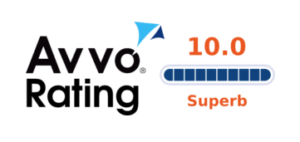



Unum Disability Insurance: Disability Insurance Attorneys and ERISA Lawyers Protecting the Rights of Policyholders
UNUM Denial
UNUM Appeals
UNUM Lawsuit
A disability insurance policy is a contract between two parties—the insured and the insurer—that creates rights and responsibilities on both sides. At its most basic, a disability insurance policy requires the insured to pay a monthly premium. In exchange, the insurer provides disability benefits should the insured unexpectedly become disabled. Those with disability insurance understandably assume that they will receive disability benefits should they become unable to work after a disabling illness or injury. After all, if you have held up your end of the bargain under the contract shouldn’t your insurance company do the same? We can help get your benefits paid, contact our Unum Disability Claim Denial Lawyer to speak with a lawyer now.
Unfortunately, disability insurance companies leave thousands of their customers high and dry when they need help the most. At DarrasLaw, our disability insurance lawyers and ERISA attorneys are committed to helping people when Unum or other big insurance companies wrongfully deny their disability insurance claims. We offer free consultations, which can include an analysis of your insurance policy and help with your disability insurance claim. To discuss your case with a Unum disability insurance claim attorney today, call our office at 800-898-7299 or send us an email through our online contact form.
Unum Disability Insurance Policies
Unum Group is a leading disability insurance company in both the United States and the United Kingdom. Formerly known as UnumProvident, the Unum Corporation also includes Provident Life and Accidental  Insurance Company and The Paul Revere Life Insurance Company. With more than $10 billion in annual revenue in recent years, Unum provides both individual and group disability coverage to hundreds of thousands of policyholders across the United States who rely on the company for disability benefits when disaster strikes.
Insurance Company and The Paul Revere Life Insurance Company. With more than $10 billion in annual revenue in recent years, Unum provides both individual and group disability coverage to hundreds of thousands of policyholders across the United States who rely on the company for disability benefits when disaster strikes.
Unum offers various insurance policies to help people meet their financial needs if illness or accidents suddenly render them unable to work. The policies may include short and long-term disability coverage for both individuals and employers. While similarities exist between all disability insurance coverage, insurers can carefully tailor policies to account for issues related to specific policyholders. For this reason, those with Unum claim denials must carefully review them with an Unum Disability Claim Denial Lawyer or ERISA lawyer if they have any questions about their coverage.
What Injuries Can Lead to Disability Insurance Claims?
To receive benefits under a disability insurance policy, you must actually suffer a disability. While we may use the word disability loosely in everyday conversation, it has a precise definition within the context of insurance. The crafting of the disability definition in a policy is one way in which insurers such as Unum try to avoid paying out on valid disability insurance claims. In fact, Unum’s own website acknowledges that disability is not a black and white concept. According to the company, each policy defines disability, and “several definitions of disability” exist. The company does acknowledge, however, that the core concept of disability is an inability to perform the material and substantial duties of your occupation because of an illness or injury.
It sounds pretty simple—if you cannot work because an accident hurt you or illness struck you down, your insurance should provide you with disability benefits that replace a certain percentage of your former income.
Unfortunately, it is not that easy.
Filing a Claim with an Unum Disability Claim Denial Lawyer
The following constitute some of the injuries and illnesses that often lead to valid disability insurance claims:
- Traumatic brain injuries (TBIs)– Traumatic brain injuries take place when you hit your head on another object or your head moves around with enough force to cause the brain to strike the inside of the skull. They often result from motor vehicle accidents, falls, hitting hard objects, or violent assaults. Even mild traumatic brain injuries can cause serious symptoms such as dizziness, difficulty concentrating, sensitivity to light and sound, and memory problems. Such side effects can keep a person from working for weeks or months. More serious brain injuries can leave victims with cognitive deficits that prevent them from ever working again.
- Spinal cord injuries – The spinal cord is the bundle of nerves that connects the brain to the rest of the body. It allows electrical signals to pass back and forth between the brain and our bodies, allowing us to move around and function properly. Consequently, damage or injury to the spine can produce catastrophic results. In incomplete spinal cord injuries, victims still have some feeling and functionality below the site of the injury; the potential exists to improve with rehabilitation and time. On the other hand, in a complete spinal cord injury, victims cannot feel or move anything below the injury site—usually a permanent condition.
- Accidental amputations – Serious accidents can result in the loss of your extremities or limbs. While prosthetics have improved tremendously during the past few decades, no prosthetic hand or arm comes anywhere close to the functionality of a person’s natural body parts. As a result, many people who suffer accidental amputations are unable to return to the same work that they performed before their injuries.
- Catastrophic injuries – A catastrophic injury causes permanent and substantial impairment, and includes the injuries discussed above. Other catastrophic injuries may damage a person’s hearing or vision. These injuries could easily prevent a person from working for weeks, months, or years.
- Serious physical and mental illnesses – Serious illnesses such as cancer, major depressive disorders, kidney failure, heart disease, or post-traumatic stress disorder can qualify as conditions resulting in disabilities. Many insurance companies fight valid disability insurance claims made on the basis of mental health conditions, so anyone making such a disability insurance claim should speak to a disability insurance claim attorney or ERISA lawyer before taking any claim action.
Unum Disability Insurance Denials: A Checkered Past
Unum claims, “The Company is committed to serving its customers with the highest standards of business ethics and in compliance with all applicable laws and regulations.” Significant concerns about the way the company handles disability insurance claims, however, have prompted regulators to pursue prior legal action against Unum.
- In 2005, Unum entered into a settlement agreement that required it to change its disability insurance claims practices, reassess some long-term disability claims as far back as 1997, and pay a hefty fine. The settlement agreement resulted from an investigation conducted by insurance regulators in all 50 states and American Samoa, and a related investigation conducted by the U.S. Department of Labor.
- A 2008 examination conducted by the state of California found that out of 191 reassessed disability insurance claim files, seven might have violated a 2005 settlement agreement that Unum executed with the state Department of Insurance. Violations included the company’s failure to apply the settlement agreement’s definition of total disability and the failure to effectuate prompt, fair, and equitable settlements in which liability had become reasonably clear.
In addition to these actions, Unum has faced a significant number of lawsuits from individual and group policyholders who allege the wrongful denial of their individual, short and long-term disability benefits. Contact our Unum Disability Claim Denial Lawyer today for a free consultation.
How Does Unum Justify Denying Disability Insurance Claims?
While some disability insurance claimants fail to meet all the policy and group certificate requirements, Unum has wrongfully denied the disability insurance claims of many eligible policyholders. In doing so, Unum often cites some of the following reasons:
You do not have a qualifying disability under your policy – As mentioned above, Unum does not provide a single definition of disability. Instead, Unum analyzes each disability insurance claim for the specific disability qualifications in that specific claimant’s policy. Depending on how Unum defines disability under your policy, Unum has many ways to allege that you did not suffer a qualifying disability. It can claim that your disability did not cause you to lose sufficient earnings, or that in spite of your particular condition you may still perform other work outside of your current occupation. Unum could also state that your condition is not severe enough to prevent you from performing your current occupational duties.
Unum’s investigators and occupational analysts may provide an opinion that your disability insurance claim does not amount to a disability under your policy’s definition. By questioning the severity and the effects of your injury or illness, Unum Group may attempt to justify the wrongful denial of your valid disability insurance claim.
Unum excluded your disability from coverage – Under certain circumstances Unum policies can specifically exclude from coverage many conditions that usually qualify as disabilities. The company —may issue a denial alleging that your disability insurance claim involves one or more of the following:
- You misrepresented information on your application for disability
- A disability arising from a pre-existing condition that predated your effective coverage
- An injury that you intentionally self-inflicted
- A disability that resulted during any period of imprisonment
- Disabilities that arose from a crime for which a court convicted you of a misdemeanor or felony
- An injury from an act of undeclared or declared war
- Injuries from active riot participation
- Lost occupational or professional certificates or licenses
- Occupational injuries or illnesses covered under workers’ compensation plans
Unum will certainly investigate the circumstances of your disability to identify every reason why it should exclude you from coverage. In some cases, Unum claims adjusters may manipulate statements, records, or other evidence in your case to ultimately deny your disability.
You failed to follow proper disability insurance claim procedures or proof of loss requirements – Each disability insurance policy will require you to comply with specific procedural requirements to avoid a delay or denial of disability insurance benefits. Your policy will contain deadlines for filing a disability insurance claim after you become unable to work. Unum denies many valid disability insurance claims simply because their customers missed this deadline. In addition, Unum requires a significant amount of information for each disability insurance claim, including:
- Personal information and contact information
- Details of your employment demands, both physical and mental
- Your typical work schedule, including the number of hours worked per week, month and year
- The dates of your last full day of work and the first day you missed work due to your disability
- The nature and effects of your specific illness or injury, side effects of medication
- Information regarding the physician who diagnosed you and the physicians who are treating your illness or injuries
- Specific information regarding any surgical procedures you required or will require, objective and subjective test results
Unum customer care representatives can collect information in many ways. First, you must provide written information when you file your disability insurance claim. In addition, your customer care representative may wish to speak with you once—or even several times—to gather more details about your disability, care and treatment. While some claim adjusters may seem to have your best interests in mind, others are not trying to gather information to support your disability insurance claim. All too often, an adjuster will ask specific questions with the intention of identifying reasons to deny your disability insurance claim. You may say something off-handedly to an adjuster without realizing its impact. Unfortunately, one wrong statement could jeopardize your entire disability insurance claim and lead to a denial.
The above are only a few ways that Unum may attempt to justify the denial of a valid disability insurance claim. Your denial letter, however, is not the final word in your case. If you received a denial, consult with an experienced disability insurance lawyer or ERISA attorney as soon as possible before making any fatal claim mistakes.
A Disability Insurance Claim Lawyer or ERISA Attorney Can Help You
A denial does not necessarily mean that you will never receive disability insurance benefits under your Unum policy. However, just as Unum employs multiple ways to justify wrongful denials, its customer care claim representatives are also skilled in challenging the appeals of denied disability insurance claims—so hire a disability insurance appeal attorney who understands how to effectively and aggressively defend your rights and get the disability insurance benefits you deserve.
The many methods of appealing a disability denial depend on the nature of your policy. Whether you need to file an administrative appeal or a lawsuit against Unum, the experienced Unum Disability Claim Denial Lawyer and ERISA lawyers at DarrasLaw know how to navigate the process.
DarrasLaw lawyers will analyze the reasons Unum cited for your denial and compare them to the circumstances of your disability. Our legal team has its own investigators, vocational experts, and other resources to gather evidence to prove your inability to earn a living due to your disability and to refute claims that Unum should exclude your disability from coverage. We will take your appeal to the very end, if necessary. Our extensive trial experience allows us to provide the highest quality of representation in and out of court.
One way to minimize complications with your disability insurance claim is to discuss your situation with an experienced disability insurance lawyer or ERISA counsel before you even file a claim. Our disability insurance claim attorneys understand how to interpret even the most complex disability insurance policies. We can help you meet all procedural requirements so you provide adequate evidence to support your disability insurance claim from the start.
Call DarrasLaw Today to Speak to an Unum Disability Claim Denial Lawyer
Unum and other insurance companies have an obligation to act in good faith and to fulfill their contractual obligations to their policyholders. Unfortunately for the disabled, this does not always happen, and many people suffer through unreasonable delays in obtaining their disability insurance benefits, or experience wrongful denials of their valid disability insurance claims. If you developed a disability that prevents you from working and are getting the run-around from your insurance company—or if your insurance company denied your claim—speak with a disability insurance claim attorney or ERISA lawyer as soon as you can.
DarrasLaw is a top-rated and nationally recognized disability litigation law firm. We are fully committed to our mission: to serve the disadvantaged and disabled by ensuring they receive what their insurance companies rightfully owe them. Our compassionate disability insurance lawyers and ERISA attorneys have the skill and experience to take on large insurers at the negotiating table and, if necessary, beat them in the courtroom. For a free policy analysis and insurance case evaluation, call our Unum Disability Claim Denial Lawyer today at 800-898-7299, or send us an email through our online contact form
Frequently Asked Questions
- Denying a claim without reason.
- Failing to conduct a timely investigation of the matter.
- Offering an unreasonably low settlement for the claim.
- Refusing to pay a valid claim
- Delaying decisions on claims or requests for medical treatment.
- The timeliness of the injury. Most disability insurers use a look-back period to determine if a condition is considered pre-existing. An example would include the individual taking medicine for or receiving treatment for a condition that occurred within 12 months of receiving coverage.
- Was the pre-existing injury disclosed? Unum requires that individuals seeking long-term disability coverage disclose all pre-existing conditions. If they fail to do so, and policy underwriters fail to discover it as they are analyzing the case, the insured can be denied coverage when they file a claim seeking benefits for a condition that already existed.
Testimonial
Review: 5/5 – ★ ★ ★ ★ ★
“Dear Susan, I hope you can feel our thanks to you from Pennsylvania to California!!! I am still in shock…I can’t believe that I will never have to think about that dreaded four-letter word-“unum” again!! You don’t handle social security disability cases, do you?? I remember unum stated that will be in July of this year. God is amazing and He has had His hands on this situation. He is in control!! Well, I think you may hear from Jim-concerning what he writes about Dr. Altman. I am not sure. I will never forget what you have done for us–actually, the very first time we talked, that you said you would take our case—that was when you became my heroine!! I have never seen this much money in our checking account… Jim is calling our friend who works in our bank to check with her what would be the smart thing to do with it. It makes me nervous! Have a great day and hug your little boy for me. I will keep you and your family in my prayers. God bless you. Sincerely with my love”
– Marlene M.






